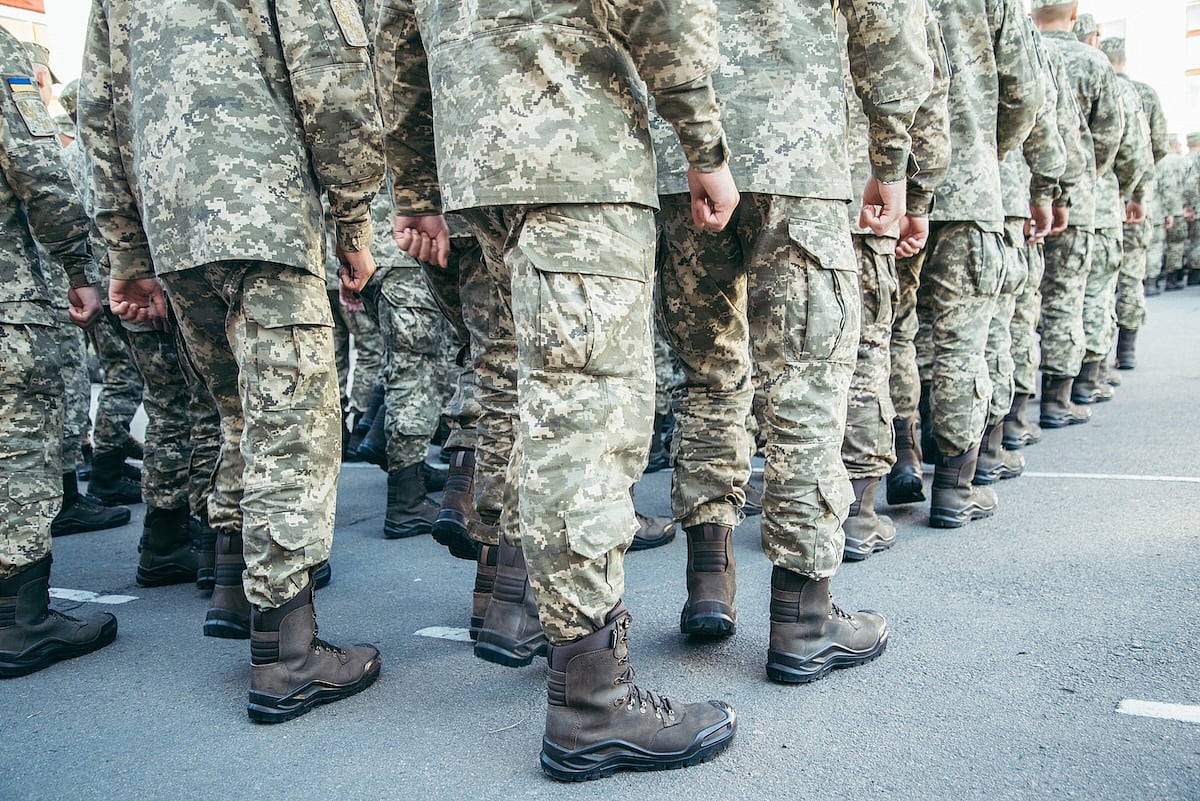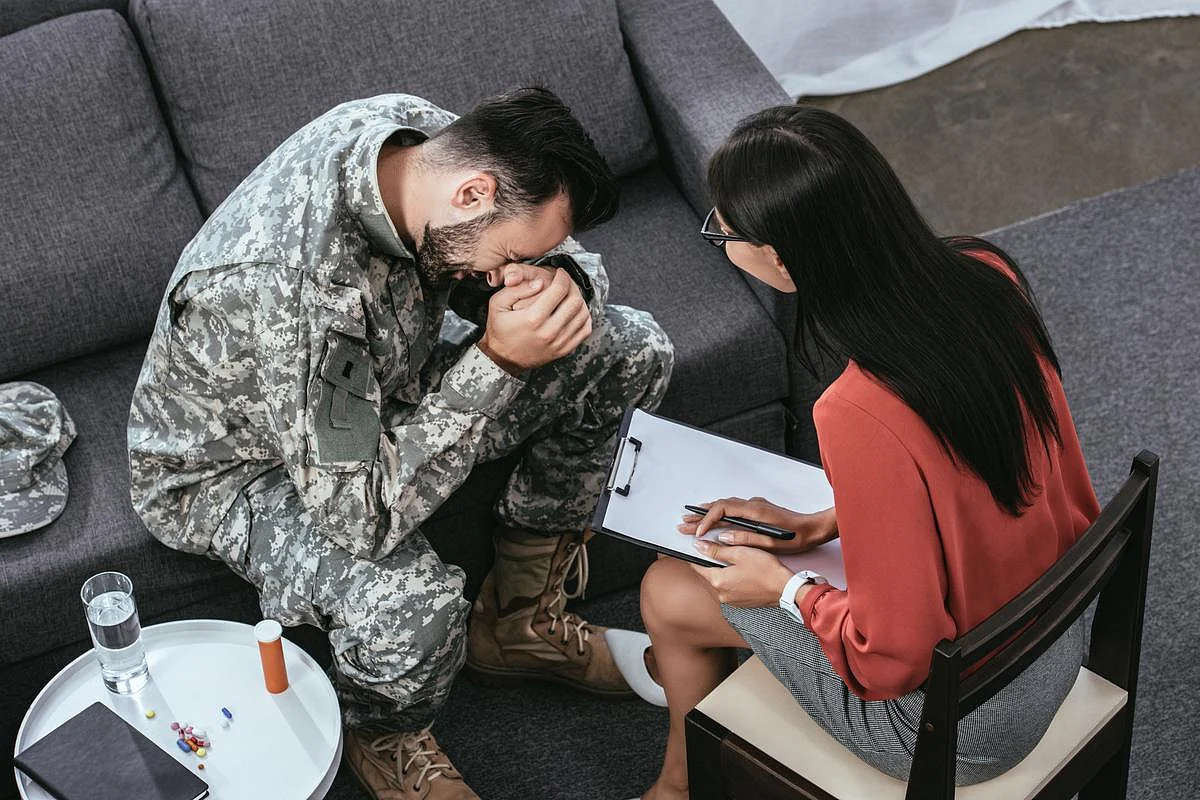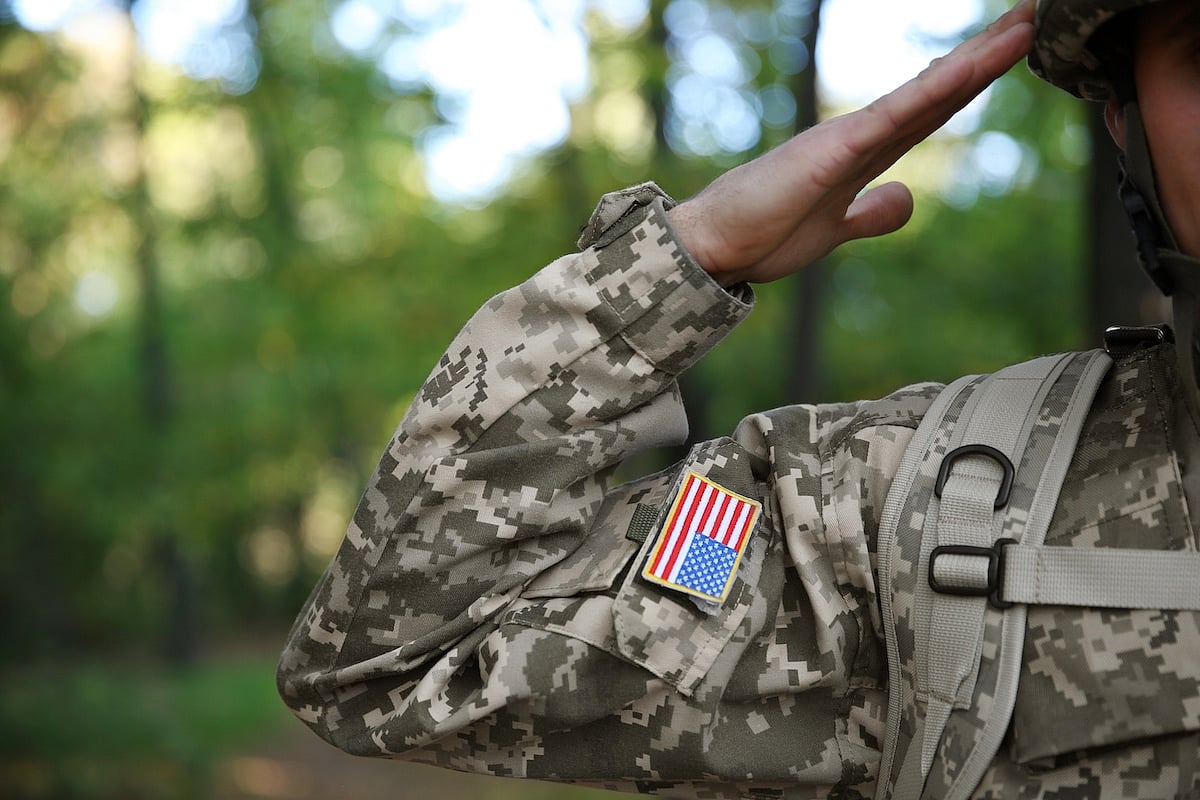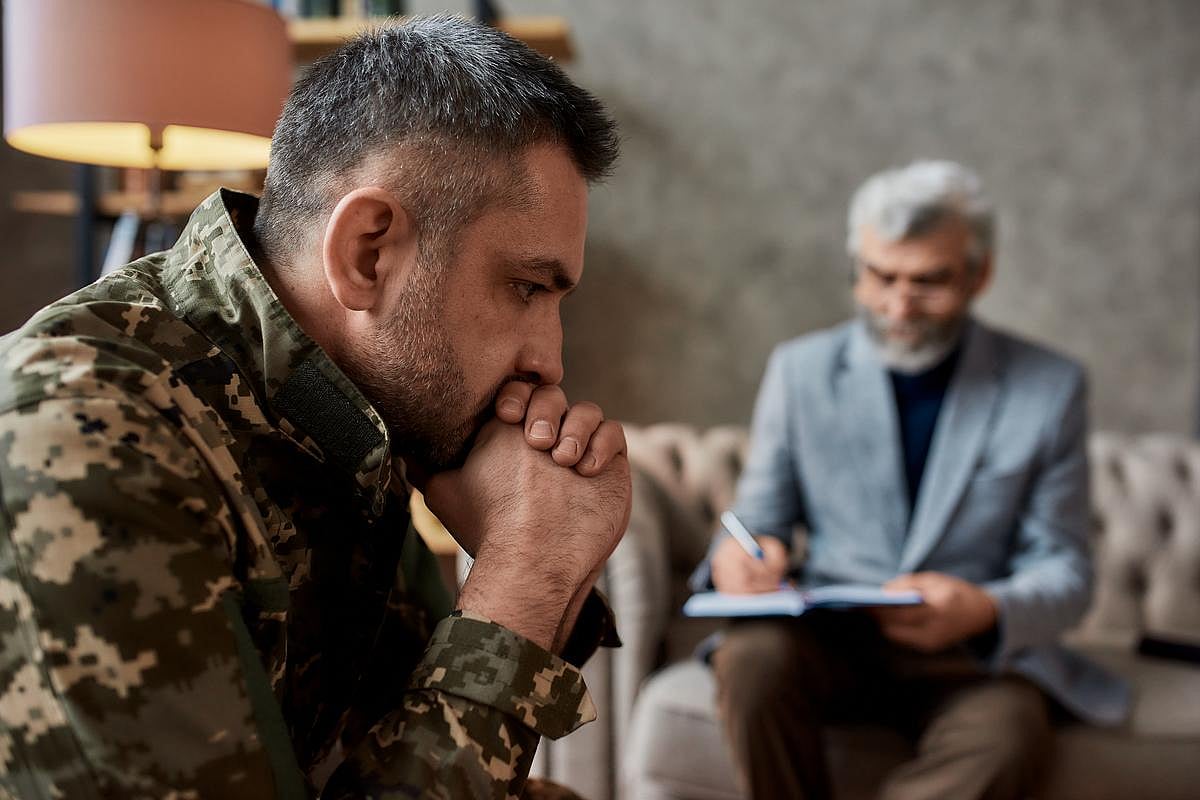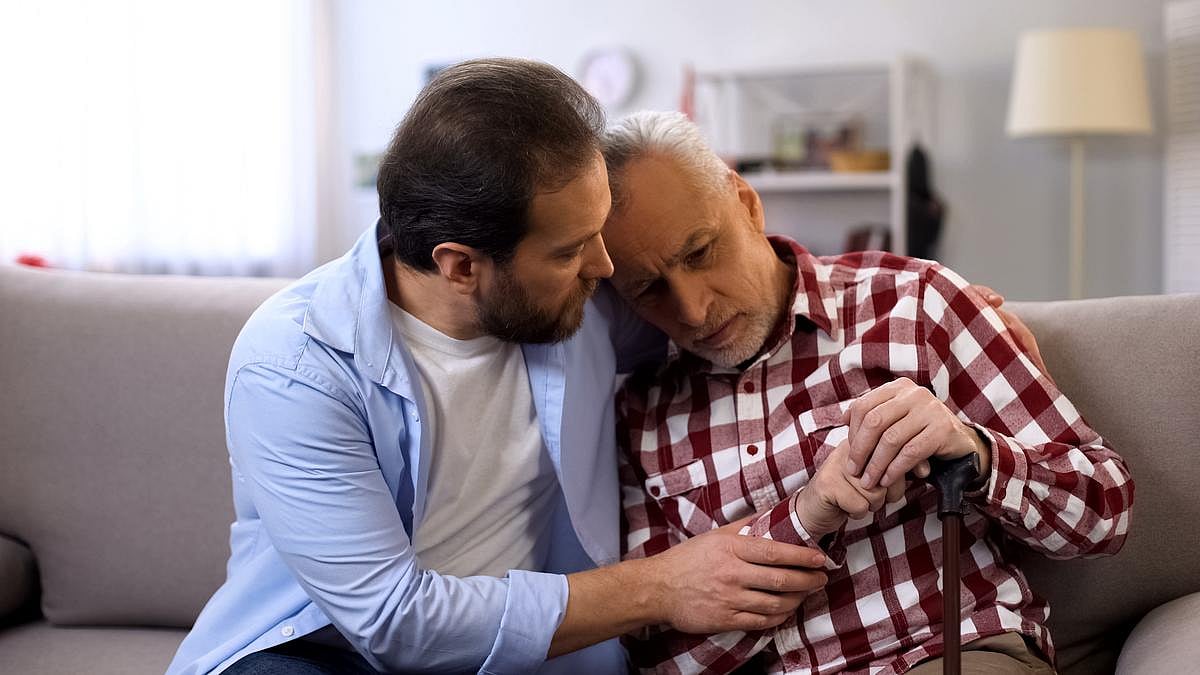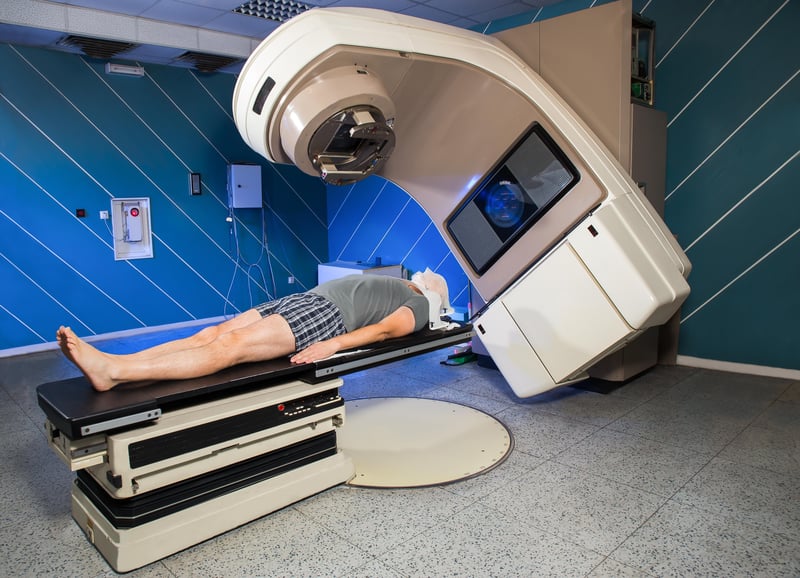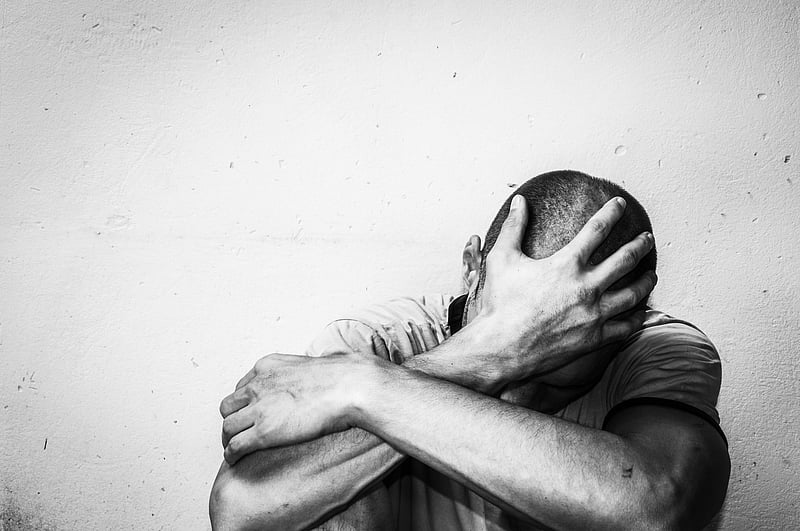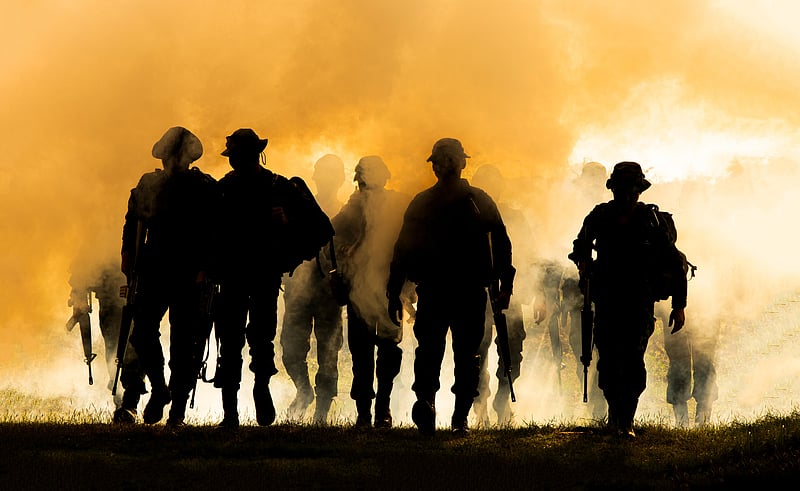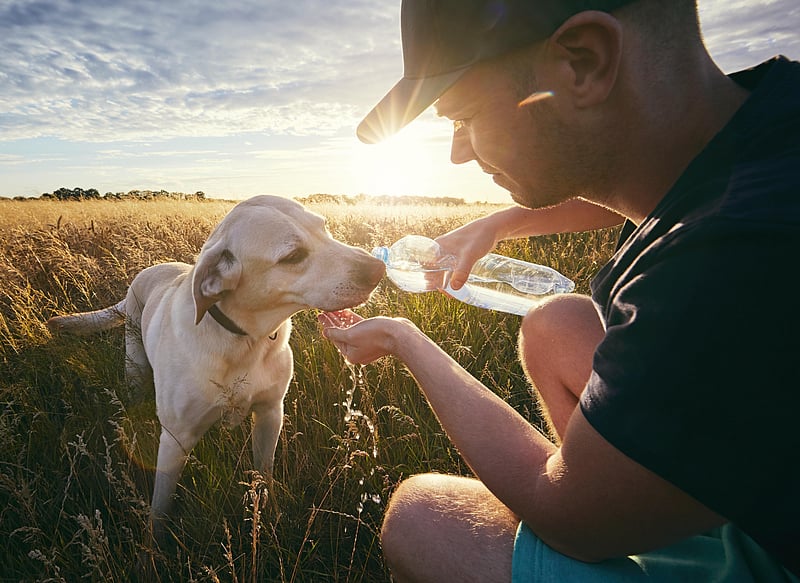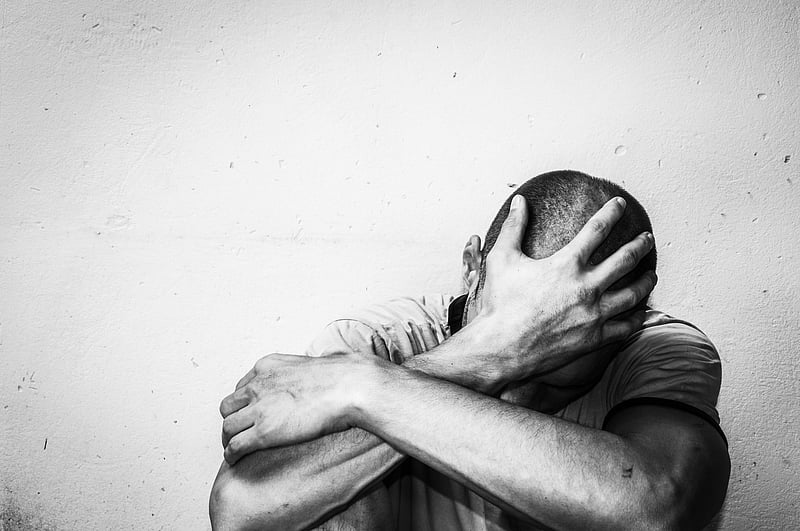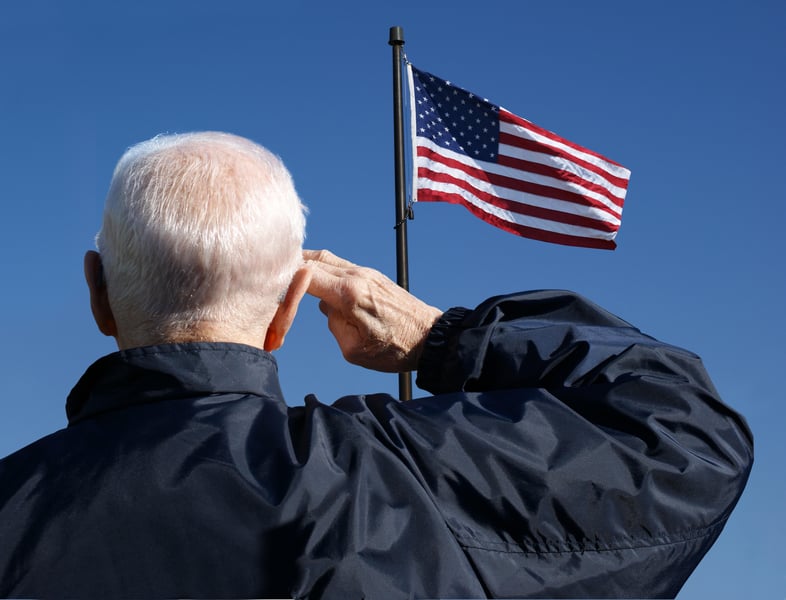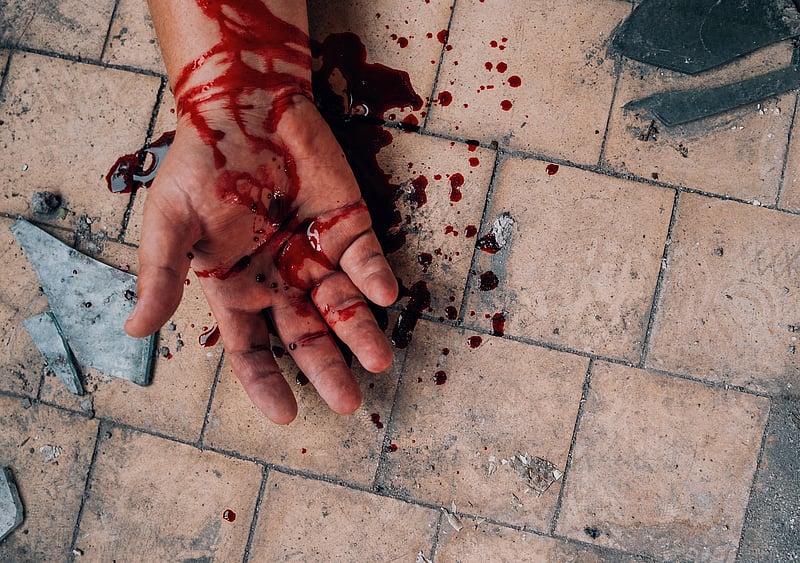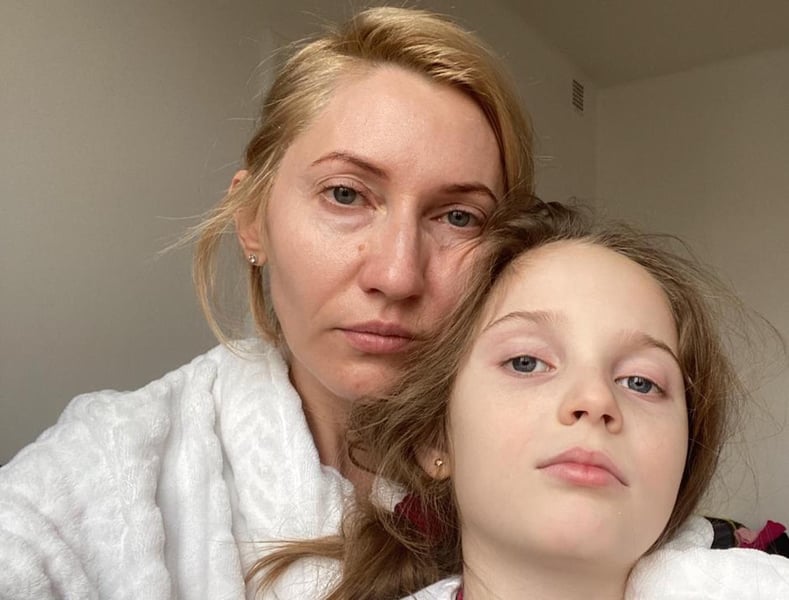Get Healthy!
Results for search "Military".
Health News Results - 41
Exposure to open-air burn pits during post-9/11 military conflicts in Iraq and Afghanistan likely caused lung damage in some U.S. veterans, a new study says.
Veterans with deployment-related lung disease had higher levels of carbon-based particles in their lungs compared to healthy controls, researchers recently wrote in the journal
Forcing veterans to revisit the horrors that led to their post-traumatic stress disorder (PTSD) might prompt many to drop out of therapy, a new evidence review found.
About a quarter of U.S. service members and veterans who start psychotherapy for PTSD quit before they finish treatment, according to a...
- Dennis Thompson HealthDay Reporter
- |
- November 19, 2025
- |
- Full Page
The mentally scarred, deeply depressed combat veteran is an indelible stereotype promoted by movies and TV.
The post-traumatic stress and despair that some suffer following military deployment have prompted concerns that service members are highly vulnerable to depression.
However, the opposite might be t...
- HealthDay Reporter
- Dennis Thompson
- |
- May 30, 2025
- |
- Full Page
Brain damage that veterans suffered from flying shrapnel has provided a major clue that could lead to better treatment for post-traumatic stress disorder (PTSD), a new study says.
Veterans who suffered shrapnel damage connected to their amygdala, the fear center of the brain, were less likely to develop PTSD, researchers reported Sept. 24 in the journal
Millions of Americans are caring for veterans, putting their finances and their mental health on the line to help those who have served the country.
More than 14 million Americans now provide daily care to wounded, sick or injured military service members or veterans, a new study finds.
And data show that care is tak...
- HealthDay Reporter
- Dennis Thompson
- |
- September 25, 2024
- |
- Full Page
People with HIV can no longer be turned away if they try to enlist in the U.S. military, a federal judge has ruled.
The decision, issued this week by U.S. District Judge Leonie Brinkma, said the Pentagon&r...
- HealthDay Reporter
- Robin Foster
- |
- August 23, 2024
- |
- Full Page
Wartime appears to increase the risk of chronic pain for military women, a new study suggests.
Active-duty servicewomen who served between 2006 and 2013"a period of heightened combat deployments"had a significantly increased risk of chronic pain compared to women serving at other times, according to results published July 5 in the journal
Military veterans often struggle with their mental health once their service ends, but the first clinical trial of its kind has found that having a service dog helps lower the risk of PTSD for these former soldiers.
Veterans paired with a service dog had 66% lower odds of a PTSD diagnosis, compared to a control group of vets still waiting for a service dog, researchers reported June 4 in ...
- HealthDay Reporter
- Dennis Thompson
- |
- June 5, 2024
- |
- Full Page
Active military service appears to increase a woman's risk of having a low birthweight baby, a new review finds.
Nearly two-thirds of studies (63%) conclude that women on active service could be at higher risk of having a baby with low birth weight, researchers reported April 22 in the journal BMJ Militar...
- HealthDay Reporter
- Dennis Thompson
- |
- April 23, 2024
- |
- Full Page
Soldiers can suffer brain injury if they are repeatedly exposed to explosive blasts, a new study shows.
Further, the more frequently a soldier is exposed to explosions, the greater their risk for brain injury, researchers reported April 22 in the Proceedings of the National Academy of Sciences.
Based on this, researchers intend to develop a diagnostic test to detect blast b...
- HealthDay Reporter
- Dennis Thompson
- |
- April 23, 2024
- |
- Full Page
Combat veterans who suffered traumatic brain injuries due to explosive blasts may have markers in their spinal fluid similar to those of Alzheimer's disease, new research finds.
"Previous research has shown that moderate to severe traumatic brain injuries may increase a person's risk of Alzheimer's disease," said senior study author
People who've suffered a moderate to severe traumatic brain injury have a greatly increased risk of brain cancer, a new study of military service members finds.
Brain cancer is relatively uncommon, occurring in fewer than 1% of people in the United States, researchers said.
But service members who had a moderate or severe brain injury were at 90% increased risk for developing malign...
- HealthDay Reporter
- Dennis Thompson
- |
- February 16, 2024
- |
- Full Page
The Vietnam war was a traumatic event in American history, most especially for those who served.
However, there's a glimmer of good news from recent research: Suicide rates for Vietnam veterans over the past four decades were no higher than that of the general population.
Still, between 1979 and 2019 -- the period covered by the new study -- almost 100,000 Vietnam War vets did lose ...
- HealthDay Reporter
- Ernie Mundell
- |
- December 29, 2023
- |
- Full Page
About one in eight military families are turning to food banks and community pantries to make ends meet and feed their children, a new study finds.
More than 13% of military families with at least one child said they used a food bank at least once in the past 12 months, according to a 2021 survey of more than 8,300 families with an active service member in the U.S. Army or Air Force.
<...- HealthDay Reporter
- Dennis Thompson
- |
- November 10, 2023
- |
- Full Page
Suicide has become an urgent issue among American military veterans, with rates increasing by more than 10 times in nearly two decades, a new study reveals.
"Suicide rates for post-9/11 veterans have steadily increased over the last 15 years and at a much faster pace than the total U.S. population, and post-9/11 veterans with TBI [traumatic brain injuries] have a significantly higher suic...
- HealthDay Reporter
- Steven Reinberg
- |
- August 28, 2023
- |
- Full Page
An investigation into a high number of cancers at a Montana nuclear missile base has led to the discovery of unsafe levels of a likely carcinogen.
The hundreds of cancer cases appear to be connected to underground launch control centers at Malmstrom Air Force Base.
Levels of PCBs, an oily or waxy substance that is considered a
While the U.S. Veterans Affairs health system has been criticized for long appointment wait times and limited access to specialists, the quality of care and access to a range of surgical services is as good as or better than at non-VA health centers on several measures, new research reveals.
"Surgery involves many steps of care,"said lead study author
A new study on veterans, gun storage and suicidal thoughts points to an urgent need for mental health and substance-related services, according to researchers.
The study from the UCLA Center for Health Policy Research found that about 1 in 7 veterans with a firearm at home in Calif...
- HealthDay Reporter
- Cara Murez
- |
- April 28, 2023
- |
- Full Page
Military pilots and the ground crews who fuel and maintain their aircraft have higher rates of certain types of cancer, a new study shows.
The Pentagon researched cancer cases in nearly 900,000 military members who served between 1992 and 2017, comparing them to the general U.S. po...
- HealthDay Reporter
- Cara Murez
- |
- March 20, 2023
- |
- Full Page
While U.S. veterans are already eligible for emergency suicidal crisis care, starting Tuesday they can get it for free.
Care available at any VA facility or any private facility will include up to 30 days of inpatient or crisis residential care, the Department of Veteran's Affairs announced Friday. It will also include up to 90 days of follow-up outpatient care and ambulance rides to hosp...
- HealthDay Reporter
- Cara Murez
- |
- January 16, 2023
- |
- Full Page
Military service members who conceal their suicidal thoughts are also more likely to store their guns unsafely, a new study reveals.
"These findings highlight a real problem with our suicide prevention system,"said Michael Anestis, lead author of the study and exec...
- HealthDay Reporter
- Cara Murez
- |
- January 9, 2023
- |
- Full Page
A short but intensive approach to "talk therapy" can help many combat veterans overcome post-traumatic stress disorder (PTSD), a new clinical trial has found.
The study tested "compressed" formats of a standard PTSD treatment called prolonged exposure therapy, in which patients learn to grad...
- HealthDay Reporter
- Amy Norton
- |
- January 5, 2023
- |
- Full Page
A new study of U.S. military veterans reveals they are more comfortable getting help for physical ills than for mental health issues.
"The majority of participants indicated they would be willing to seek treatment for both physical and mental health problems. However, they reported significantly greater willingness to seek treatment for physical than mental health conditions," said princi...
- HealthDay Reporter
- Cara Murez
- |
- August 16, 2022
- |
- Full Page
President Biden was poised on Wednesday to sign a bill that expands health care benefits for U.S. veterans exposed to toxic burn pits.
Known as the PACT Act, the legislation is the biggest expansion of veterans' health care and benefits in more than 30 years, the White House said in a
A service dog can lower the severity of a U.S. military veteran's post-traumatic stress disorder, according to past research.
Hoping to learn more about this therapeutic bond, researchers worked with 82 vets and their trained service dogs. Their study was published July 27 in the journal
- HealthDay Reporter
- Cara Murez
- |
- August 1, 2022
- |
- Full Page
There are many obstacles to opioid addiction treatment, but a new study shows one that one outgrowth of the COVID pandemic -- telehealth -- is enabling more U.S. veterans to get help.
Researchers examined care given to vets before and after a transition to telehealth visits in early 2020 for treatment of their opioid use disorder. Telehealth for patients receiving the prescription drug
- HealthDay Reporter
- Sydney Murphy
- |
- July 28, 2022
- |
- Full Page
More disability payments led to fewer hospitalizations for Vietnam veterans with diabetes, according to a new report.
The research looked at 14,000 Vietnam vets who benefited...
- HealthDay Reporter
- Ellie Quinlan Houghtaling
- |
- July 8, 2022
- |
- Full Page
A degenerative brain condition uncovered in some former professional athletes has been reported in military veterans as well, but a new study suggests it's uncommon and questions whether service itself confers the risk.
At issue is a condition called chronic traumatic encephalopathy (CTE), a form of p...
- HealthDay Reporter
- Amy Norton
- |
- June 10, 2022
- |
- Full Page
U.S. veterans are at higher risk for melanoma, the deadliest form of skin cancer, than most Americans, and new research finds they are also more likely to have advanced-stage disease when it's detected.
At the time of diagnosis, "we found veterans with melanoma were more like...
- HealthDay Reporter
- Alan Mozes
- |
- June 7, 2022
- |
- Full Page
After 30 years, researchers believe they finally have definitive evidence of the primary cause of Gulf War syndrome: exposure to low levels of the nerve gas sarin.
Gulf War syndrome is blamed for leaving a quarter million veterans of the 1991 conflict with a disabling array of long-...
- HealthDay Reporter
- Amy Norton
- |
- May 12, 2022
- |
- Full Page
Images of Ukrainians being carried on stretchers from bombed-out buildings, wounded and bleeding, are heartbreaking, but one American surgeons' group is doing its part to help teach the war-torn country's citizens how to halt life-threatening bleeds.
When serious injury strikes, time is of the es...
- HealthDay Reporter
- Alan Mozes
- |
- April 1, 2022
- |
- Full Page
Since Russia invaded Ukraine, millions have fled their homes and sought refuge wherever they could find it.
Each individual story is intensely personal, but mental health experts warn of a refugee crisis that risks leaving a nation of 43 million with deep psychological scars for years to come.
Marina, from Kyiv, now counts herself among the displaced.
"Today, I would only lik...
- HealthDay Reporter
- |
- March 16, 2022
- |
- Full Page
U.S. National Guard soldiers are at heightened risk for problem drinking after military deployment, but less likely to receive help with their alcohol struggles than active-duty service members, a new study finds.
Exposure to combat during deployment was the strongest risk factor for problem drinking among the reservists in the study, according to the report published online March 8 in th...
- HealthDay Reporter
- |
- March 10, 2022
- |
- Full Page
President Joe Biden plans to announce Thursday that a "surge" of U.S. military medical personnel will soon be deployed to hospitals struggling with staff shortages amid soaring COVID-19 cases.
More than 1,000 will begin arriving at hospitals nationwide starting next week, and that deployment will be in addition to other federal medical personnel who have already been sent to states to off...
- HealthDay Reporter
- Robert Preidt
- |
- January 13, 2022
- |
- Full Page
Nearly 98% of the U.S. Army's active duty force had received at least one coronavirus vaccine dose as of Wednesday's deadline for mandatory vaccination, officials said Thursday.
However, more than 3,800 soldiers have refused to get a shot and could start being discharged from the military next month, according to an Army
A new program to help U.S. veterans with lung problems caused by inhaling toxins while deployed was announced on Veterans Day by President Joe Biden.
It will also assess the potential connection between cancers and time spent overseas breathing poor air, according to the White House.
"We're discovering there is a whole host of lung conditions related to deployment," Dr. Richard Meeh...
- HealthDay Reporter
- Robert Preidt
- |
- November 11, 2021
- |
- Full Page
As a Marine Corps veteran who served in both Iraq and Afghanistan, Matthew Ryba understands what life in a combat zone can do to soldiers' minds, leaving many struggling with post-traumatic stress disorder.
Now, new research shows that equine therapy might go a long way in starting the healing process for these veterans. In the program, participants learned about horses, stroking their si...
- HealthDay Reporter
- Cara Murez
- |
- September 1, 2021
- |
- Full Page
Unvaccinated U.S. troops must immediately start getting COVID-19 vaccines, says a memo issued Tuesday by Defense Secretary Lloyd Austin.
The Pfizer COVID-19 vaccine, which recently received full approval from the U.S. Food and Drug Administration, will be added to the list of required shots for U.S. troops. They'll be able to get their shots at their bases and from their commands worldwid...
- HealthDay Reporter
- Robin Foster and Robert Preidt
- |
- August 25, 2021
- |
- Full Page
Following on full U.S. regulatory approval of the Pfizer COVID-19 vaccine, the Pentagon announced on Monday that all military personnel -- including 1.3 million active-duty troops -- must get their shots.
According to the Associated Press, Department of Defense spokesman John Kirby said Pentagon officials are preparing to issue guidance to require vaccination, although no exact...
- HealthDay Reporter
- Ernie Mundell
- |
- August 23, 2021
- |
- Full Page
All members of the U.S. military must get a COVID-19 vaccine by mid-September, the Pentagon announced Monday.
Defense Secretary Lloyd Austin noted that the deadline could be moved up if the vaccine receives final approval sooner from the U.S. Food and Drug Administration or if infection rates continue to rise.
"I will seek the president's approval to make the vaccines mandatory no l...
- HealthDay Reporter
- Ernie Mundell and Robin Foster
- |
- August 10, 2021
- |
- Full Page

